Wayne C. Allen's Blog, page 23
April 2, 2018
The Teachable Mind Meets the Changeable Moment
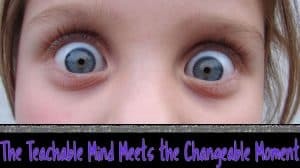
The Teachable Mind Meets the Changeable Moment — being teachable means being able to shift perspective, to grow in understanding. Hard task for many folk, unfortunately.

Psst! Hey!
** Want more great writing designed to help YOU to shift your behaviour?
** Want to learn how to find, build or deepen your principal relationship?
** Want to know more about Zen living and being?
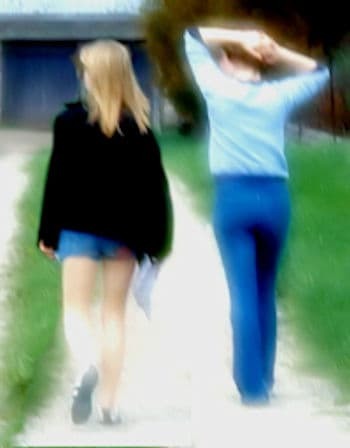 The Path to Knowing
The Path to KnowingLife is a lot like school. Let’s think about math. In grade one, we learn to add.
Now, the goal of learning to add is two-fold.
The first reason to learn to add is… wait for it… to learn to add!
The second reason is to prepare to learn to multiply.
When we’re in school, each lesson is both about itself, and each lesson serves as the basis for the next lesson. Each lesson becomes the foundation for the next; each gives us something to build upon.
For many people, this rule of learning is forgotten.
Life provides opportunities for growth in understanding; these lessons are always in the form of a challenge. Each time a challenge occurs, we face a choice. Will we be teachable, or will we choose to do what we always do, think what we always think?
This is too important not to say again: each interpersonal, each intrapersonal skill we have can be seen in two ways:
it can be seen as a thing unto itself,
or it can be seen as a building block for the next learning.
Like our example: The purpose of learning to add is to be able to add. Pure and simple. The purpose for learning to communicate is to be able to get our needs met and to have a medium for the exchange of ideas. Pure and simple.
Until the first multiplication problem comes along. Until the first misunderstanding comes along.
That’s the changeable moment.
Imagine the poor kid, (Let’s call him Little Donnie Trump…) entering grade three, thinking, “Wow! What a rough two years of school. Addition. Subtraction. Reading. Penmanship. Printing. But I’ve got it all figured out! Now I can just sit back and relax.”
The teacher drops a sheet of paper on the Donnie’s desk. He reads, “3 x 3.”
The Donald may think, “What a stupid teacher. She doesn’t even know that the sign for addition is ‘+’. I’ll use my big words and point out her mistake to her.”
Another kid has been parented to be self-critical. He might say, “Oh God, I must not have been paying attention back in grade 2, I’ m missing something here, I’ll never be able to get this.”
Another kid says, “I think the teacher is trying to teach me something new. But that’s not fair! The teacher should change. She should stop trying to help me learn. Doesn’t she know that I can’t learn anything new?” (If he was 38, he’d be saying, “I can’t change my understandings now. I’m too old and set in my ways. Besides, the way I am is the way I am. And then there’s the genetic component.)”
The message is: “I think I’ll stop right here. Change is unnecessary — too difficult — whatever.”
We used to live in Mennonite land. There are many “Orders” to the Mennonite faith; Old Order Mennonites dress in black, eschew buttons as “proud,” drive horse and buggies, and aren’t allowed to have phones or electricity in the house.
Most Old Order Mennonites pull their kids out of school after grade 8. They figure the kids have learned all that they ever will need to know from school. They have basic math and writing skills — enough to run a farm. To leave the kids in school when the hormones and the philosophy discussions kick in — well, that’s too big a risk, as they might change their minds and choose to leave.
Lest we laugh too quickly here, I understand where they are coming from. Back before I retired, I endlessly heard two variations on this “I’ve learned enough — I can’t change” theme.
“Woe is me! I’ll never have a successful relationship (with my spouse, my parents, my kids, etc.) good sex, a better job, respect, enough toys” — whatever. Or
“I’ve tried and tried to change my life / spouse / job / understandings / way of being in the world -’ by doing ‘x.’ It never works. Please, teach me to do ‘x’ better, so it will finally work.”
In both cases, the client wanted my support for their staying stuck.
Here’s another illustration: depression. I touch my own sadness on a fairly regular basis, I know that there is a strong pull to just let myself go fully into a depression, even though I know the signs and “know better.” It takes a steel will and the willingness to ask for help (for me, that’s Darbella) to get through the episode.
The medical community extols the benefits of drugs. (Naturally. This is North America and North America is chemically addicted.) If you read the studies, though, you’ll always read: “Psychotherapy is just as effective for treating depression as drugs.” (It’s just slower — real change always is. -WCA)
What’s required is a therapist who can teach the client new ways of seeing her or his life. There it is again.
The teachable mind marries the changeable moment. Life is a series of changes. Change is the sea in which we swim. To rail against change is the height of silly. The only solution is teachability — the willingness to change ourselves — which could also be described as flexibility.
Back to math class and ‘3 x 3.’
Little Donnie, (who thinks the teacher must be wrong about the ‘x’ sign,) thinks he knows it all and that others are stupid and incompetent. His goal is to smarten everyone else up. In his false superiority, he’ll cross out the ‘x’ , insert a ‘+’ , get 6 and think, “Boy, I sure showed them!”
The self critical kid will give up, feel miserable, and and will stay stuck right where he is.
The kid who blames others for where she is and what’s expected will continue to be “entitled,” and will never understand why the world refuses to go along with her.
And then, there’s little Johnny. His hand shoots into the air. “Mr. Brown! Mr. Brown! I don’t know what this ‘x’ is. Can you tell me how to solve this?” Mr. Brown says, “Class, this is something new, called multiplication. Imagine you have three piles of three pennies. How many pennies do you have?”
For the simply curious, the light goes on. And a new skill is born.
For the wise, comes another insight. “If I am to be fully myself, I must always be willing to change my understandings. My mind must be open — my heart must be open. I’ll need to reach out to others for new understandings. Because as soon as I say, I can’t, I can’t.”
It’s up to you. But really. How do you choose to stay stuck in a changing universe? Maybe it’s time to give up your illusions. For a better set of illusions. Which, soon, will be given up too. As Frankie sang, “That’s life !” The wise soul, in the end, knows that he knows nothing.
The post The Teachable Mind Meets the Changeable Moment appeared first on The Pathless Path.
March 26, 2018
Rumi Poems — Exploring the Depths
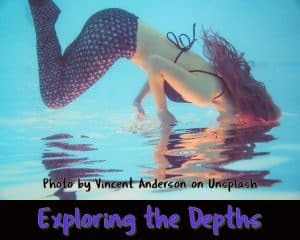 Rumi’s Poetry as a Way Inside
Rumi’s Poetry as a Way InsideExploring the Depths — we have to be willing to escape blue-sky thinking, and dig deeply in the fertile ground — of ourselves

Psst! Hey!
** Want more great writing designed to help YOU to shift your behaviour?
** Want to learn how to find, build or deepen your principal relationship?
** Want to know more about Zen living and being?
We’re happily settled in our little condo near the beach. The heat is great! Next week, we’ll be moving on from Rumi to a new topic — this time on Relationships and Intimacy. Stay tuned!
Many moons ago, I wrote a series of articles featuring some of Rumi’s poems. I think it’s time for a revisit.
Jelaluddin Rumi lived during the 13th century. He was a theologian with his own divinity school. At age 37, through a relationship with a dervish monk, Shams, Rumi began to transform his being, and in the process, to write some of the most beautiful mystical poetry ever written. For the next several weeks, we’ll reflect on some of his poems.
I’m using a translation from the book The Illuminated Rumi.
Planting in the Depths
How will you know the difficulties of being human if you’re always flying off to blue perfection?
Where will you plant your grief-seeds? We need ground to scrape and hoe, not the sky of unspecified desire.
Rumi
Exploring the Depths — The Idea of Groundedness
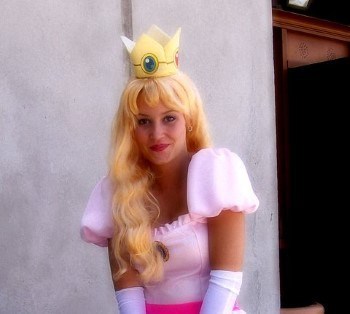 The world needs fewer snowflakes
The world needs fewer snowflakesA couple of years back a then newly-minted divorced friend asked me to work on her body, as she’d realized she wasn’t very grounded. This was something I’d known about her for some time.
She lives mostly in her head;
»thinking (including thinking she’s the smartest person in the room)
»plotting and planning (she’s an expert at manipulating others into doing what she wants) and
»blaming (she’s sure that all of her issues have been caused by others — and she’s an expert at proving that to herself.)
None of which is particularly enlightened thinking — and enlightenment and groundedness go hand-in-hand.
Initially, she did have a few months of what I would call Grounding 101. She dated a guy who was into being in the moment and being in his body. She followed suit, until her head couldn’t stand the lack of structure (read: her structure.) He wouldn’t go along with her need to control him; that was that.
At the time of her request, she’d come through a period of intense physical training, coupled with continually blowing out her lower back. From a Bodywork perspective, the lower back is vulnerable to “going out” when we are out of touch with our passion; and that is often caused by “not having a leg to stand on.”
In other words, lacking groundedness. Because everything is connected.
When Rumi talks about “flying off to blue perfection,” I find myself thinking about the myriads of who are ungrounded — who live in their heads — ruminating, judging, blaming, and emphatically expecting life to be easy and care-free.
Many clients came to me looking for help — they wanted ME to fix things — to make their life perfectly happy .
Boy, were they surprised when they meet me; I encouraged them to go deeply into their anxiety, their grief, their passion and their energy. In short, I guided them deeply into themselves.
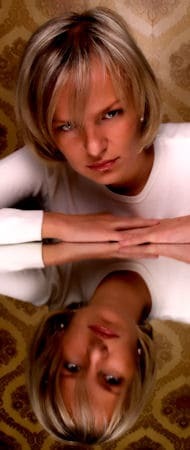
To answer to Rumi’s question about where we plant our grief-seeds: we plant them in ourselves. Grief is an existential reality and a deep component of our humanness. After all, with each breath, we are one breath closer to our death.
We need to get “in there” — deeply inside of ourselves — and scrape and hoe the ground of our being-ness.
Our being-ness is totally tied to our mortality. We, especially in the death-and-ageing-denying West, fear this territory. We want to escape into “blue perfection” — we want to head off into the wild blue yonder — and we do so through our dreams and day dreams.
We want to be anywhere but here — anywhere but in our bodies, in our lives, alive and feeling.
Our denial of the true nature of life, of its admixture of darkness and light, kills us as surely and a certainly as anything else.
Rumi calls us to experience all of life, not just the “fun parts.” He wants us to get in there and root around, to dig in the dirt of our pains and hurts, our disappointments and discouragements. He wants us to get our hands dirty at the depths of ourselves.
Why? Because in order to come to grips with ourselves, to meet and to learn to love ourselves, we have to embrace ALL of our humanity.
In Bodywork, pain always precedes release. Always. People who are too scared or too tight to let go and experience the pain will never feel much of anything.
Another friend had a few Bodywork sessions — and was always stoic and quiet. After each session, she’d sit next to me and cry quietly on my shoulder. Over the course of the Sessions, she began to find herself.
She continued to scare herself with her pain and with her sadness, yet with each quiet session and release of tears, her eyes cleared a bit more, and she became wiser. She knew that her deep sounds had to come out — the sounds of her pain.
After more sessions, she let go of her rigid control, and the sounds came. She discovered that next, both the fear and the wish for “blue skies” had to be transcended. She found the passion and joy that lay beneath her hardened shell.
She found herself!
The post Rumi Poems — Exploring the Depths appeared first on The Pathless Path.
March 19, 2018
Rumi Poems — Strange Journeys
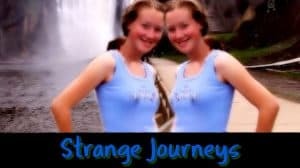
This is post 10 of 10 in the series “Rumi Poems”
Rumi’s Poetry as a Way Inside
Strange Journeys — these poems are all about strangeness — as in different from the norms most people adopt. The goal is to accept the strangeness

Psst! Hey!
** Want more great writing designed to help YOU to shift your behaviour?
** Want to learn how to find, build or deepen your principal relationship?
** Want to know more about Zen living and being?
We’re back in Costa Rica! What a relief — back to the heat!
Many moons ago, I wrote a series of articles featuring some of Rumi’s poems. I think it’s time for a revisit.
Jelaluddin Rumi lived during the 13th century. He was a theologian with his own divinity school. At age 37, through a relationship with a dervish monk, Shams, Rumi began to transform his being, and in the process, to write some of the most beautiful mystical poetry ever written. For the next several weeks, we’ll reflect on some of his poems.
I’m using a translation from the book The Illuminated Rumi.
Strange Journeys
Rise up nimbly and go on your strange journey
to the ocean of meanings.
The stream knows it can’t stay on the mountain.
Leave and don’t look away from the sun as you go,
in whose light you’re sometimes crescent, sometimes full.
Rumi
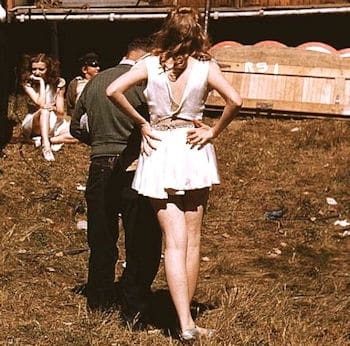 Life is a circus — just avoid the elephant droppings
Life is a circus — just avoid the elephant droppingsRumi wanted us to understand one thing — that the path to deep understanding — which could also be called the path to enlightenment — is an “easy” path. It is a downhill path.
It is a guided, illuminated, clear, direct path.
Human beings make the journey difficult or impossible for themselves — they’ve been doing so for 100,000 generations. This interference doesn’t make the path difficult.
The difficulty lies in our resistance to self-responsibility.
This poem fragment begins “Rise up nimbly.” Many of you know that I’ve spent the better part of my life involved in one or another martial art. Dar and I have practiced Tai Chi, a soft martial art. Before that, we spent a couple of years ranking in Ninjitsu, another full and soft martial art.
In Ninjitsu, you get to spend a ton of time learning how to rise up nimbly.
You sit Japanese style, with legs tucked under or one leg down, the other “knee up.” On command, you rock forward and press your legs and feet downward with your leg muscles alone. Your arms are not involved. Boom. You’re up — nimbly.
Don’t know if any of you just tried it, but if you did, you likely didn’t pull it off very well. Neither did I, at first. Took a bit of practice. It’s a matter of balance, strength and timing.
Just like life.
Balance — in life involves giving up on thinking anything is “so,” and accepting that all things “simply are.”
Balance involves letting go of having to force our judgements on others (we never get over judging — we all judge, all the time. The question is what we do with the judgments. If we beat up on ourselves or others, we have not learned balance.)
Strength — in life is different (as my friends Ben & Jock have written about in The NEW Manual for Life) from power. Power is what gets exercised against others. Strength is internal and focused at building character, elegance and flow.
Timing — in life is emphatically not about waiting forever, nor is it about mindless activity “right now.” Timing is about having our eyes open and our minds alert, so that, when everything is “just so,” we are prepared.
Much of the “non-accomplishment” that plagues us is about not paying attention to timing.
Rumi was never one to hide the ultimate oddness of the walk he was suggesting — the walk he had chosen for himself.
Often he uses the word strange — “strange business”, “strange journeys — these poems are all about strangeness — as in different from the norms most people adopt.
We seek to accept the strangeness.”
It’s not strange because it’s wrong — it’s strange (or uncommon) because so few people choose to walk it.
Thus, it’s strange from the perspective of “normal.” (Whatever that is.)
A journey to the “ocean of meanings” is a confusing clause, as we often talk about the path of ‘enlightenment’ to be a path of “not knowing.”
Rumi, were he here, would smile, and likely say, “paradox.”
While it is so that we will never know much of anything for sure, we all seek meaning. By this we “mean” we want to enter into the “meaning of life.”
And perhaps, at that global level, the meaning of life is to get off our butts, (and off of our ‘buts’ — “but … but … I can’t do that now!”) and get moving.
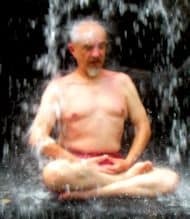
Submerging ourselves in the ocean of meaning is to know that each of us is here for a purpose, and that this purpose is larger than us; just as the ocean is larger than us.
We are truly like the river on the mountain, which is incapable of staying there. The nature of water, gravity and a downhill slant precludes any other result than the river flowing downhill. In our physical universe, there is no other outcome possible.
In our lives , however, any dumb thing is possible.
I’ve seen people get this stuff, get a taste of it, and then run away from it, literally trying to run a river uphill.
I’ve seen people put their toes in this water, and then just sit there, frozen, afraid to move, and the water seems to freeze itself and their hearts.
And many get so enamored with the feel of the water, the bliss, that they become energy junkies, running from charge to charge, high to high, complement to complement, and forget the journey to the sea never actually happened for them.

And then there are those who dive into the river and body surf to the sea, plunging in, dancing in the water, and finally drinking deeply in the ocean. And they are flooded with meaning — without particularly understanding much of anything.
It is a wisdom that appears foolish to those who don’t get the joke — those who resist strange journeys
Lastly, notice the bit about looking into the sun, “where you’re sometimes crescent, sometimes full.” Often, in therapy, clients expected things to be perfect after they “got it” — whatever the “it” was that brought them there. If they were wise, they’d come back when things got difficult.
This path is not about “no problems.” It’s about awareness and being in the moment, so that, as life unfolds, we can “rise nimbly” and face the challenge — all without whining, griping, complaining, beating up on ourselves — in short, simply dealing with ” what’s up,” be it “crescent or full.”
Imagine diving into the ocean of meaning, and in that process giving up having to know.
The wise person is the person who knows — and most of all — knows he or she knows nothing.
A paradox, indeed.
March 12, 2018
Rumi Poems — The Love of Your Life
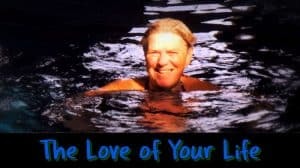
This is post 9 of 10 in the series “Rumi Poems”
Rumi’s Poetry as a Way Inside
The Love of Your Life — we all have one — and it’s buried deep inside — a vocation

Psst! Hey!
** Want more great writing designed to help YOU to shift your behaviour?
** Want to learn how to find, build or deepen your principal relationship?
** Want to know more about Zen living and being?
Our last week in Canada for a while!
Many moons ago, I wrote a series of articles featuring some of Rumi’s poems. I think it’s time for a revisit.
Jelaluddin Rumi lived during the 13th century. He was a theologian with his own divinity school. At age 37, through a relationship with a dervish monk, Shams, Rumi began to transform his being, and in the process, to write some of the most beautiful mystical poetry ever written. For the next several weeks, we’ll reflect on some of his poems.
I’m using a translation from the book The Illuminated Rumi.
The Love of Your Life
Let yourself be silently drawn by the stronger pull
of what you really love.
Rumi
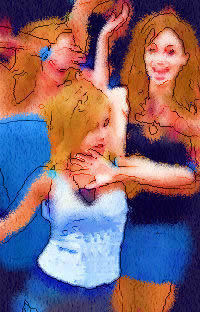
Wouldn’t you think that, on the face of it, this “living one’s life in the silent pull of what one loves” would be what we all do?
And doesn’t it make sense that we all would be doing what we love, but emphatically not making a song and dance out of it?
I probably don’t have to say that this is not the experience most people have.
As Thoreau put it,
“The mass of men lead lives of quiet desperation. What is called resignation is confirmed desperation. From the desperate city you go into the desperate country, and have to console yourself with the bravery of minks and muskrats. A stereotyped but unconscious despair is concealed even under what are called the games and amusements of mankind. There is no play in them, for this comes after work. But it is a characteristic of wisdom not to do desperate things.” (Walden, Henry David Thoreau)
So, when I write or say that such “quiet desperation” is simply one choice of many, lots of people try to make this complicated.
Quiet desperation: a small example –
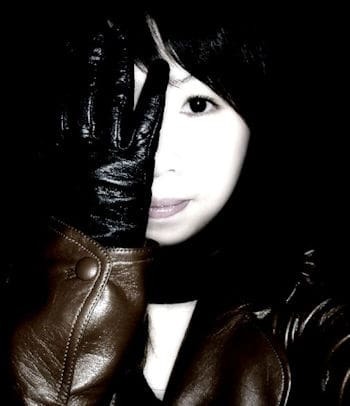
I once had a client who seemed to have had tons of dramatic incidents in her life; ones she never seemed able to do anything about. After a 4 month break, she’d returned to therapy to tell me that her life was still in the tank.
In the process of relating a fairly long series of complaints, she said that she had been accepted into Nursing School — in the past, she’d told me this was a life-dream of hers. She sighed.
I asked her to tell me how she was making her acceptance into a bad thing. She replied, “Well, if I hadn’t had that auto accident two years ago, I’d be finishing Nursing School now. I’ll never be able to stop thinking that all of this is happening two years later than it was supposed to.”
Here are a couple of other versions of desperation
Noisy desperation –
Noisy desperation is the sound of whining — those who really believe that they have to have something to complain about, also think that the rest of the world should both listen and actually care.
Noisy braggadocio –
Then, there’s the noisy palaver of those who are sort of doing what they want to do, and who really, really want you to know how charged up and wonderful they are. I get the feeling that, far from being totally immersed in the thing that they love, they are actually immersed in the adoration of the crowds.
Which leaves the Rumi quote –
Inside each of us, deep inside, is a strong pull to find our centre… with our purpose and vocation. The pull of this vocation is subtle, but strong, like undertow. It tugs at the harp strings of our hearts, playing a quiet melody.
I always describe this energy as “vocational” — energy that is focussed on service.
While how this way of living varies from person to person, it has to do with letting go of the ego’s need to keep score.
For example, a common experience in the West is to get a job, work your way up the ladder, make more money, gain recognition. At the end of the day (or increasingly more frequently, in our 40’s) we begin to sense a vague disquiet that suggests to us that perhaps we’re using the wrong beans to keep score.
If we choose to keep doing things the same way, the ache in our gut (which is the feeling of existential angst — the knowledge of our impending deaths) gets stronger, and something will have to give. Many get sick. Or dive into the Prozac bottle.
Others, the wise few, begin to “talk” to the ache, and that leads to in-sight — they suddenly find themselves at a crossroads.
I recognize that, for me, leaving the church at age 45 was that crossroads. Actually, being the Drama King I was back then, I set it up to get myself turfed out — I really never fit in in the first place.
This experience caused me to begin a rigorous self-examination process; Darbella and I had to deal with the practicalities of loss of my income, and we knew that taking my counselling and consulting practice full time would take, well, time.
But the pull, the pull … was so strong. And combined with that was the pull into myself. I found myself examining everything I believed, thought, understood. And I came to the conclusion that “nothing is for sure.”
Except for this moment.
Since then, I feel continued moments of ego death, as another chunk of resistance falls away. The feeling? “Ouch!”
The tug, the pull, for me, is like a caress. I feel protected and safe within the pull, and notice no particular need to shout about what’s happening. So, Rumi’s idea of the “silent pull” resonates deeply for me.
“What we truly love” is unique to each of us. It is a felt sense of coming into the world and leaving something beautiful behind. Like Rumi’s community recording his poetry. After his “conversion experience,” he found himself spontaneously singing the poems we’ve been playing with. Some kind soul wrote them down for us; for Rumi, it wasn’t about “being a poet.” It was glorifying his relationship with God and with others, singing out the joy he found in diving into the depths of who he was.
Inside of you is a current of bliss and joy, (the The Love of Your Life) which points clearly to a “silent” vocation. You can stick to the world’s way of doing things — cling to seeking praise… or glory — or you can step quietly into the silken stream of the thing you love, and live out your love in silent wonder and joy.
The world’s way leads to quiet desperation, or noisy self-glorification. The path inside leads to silent bliss. To The Love of Your Life
So, why are you choosing to make
this a difficult choice?
March 5, 2018
Rumi Poems — Knocking from the Inside
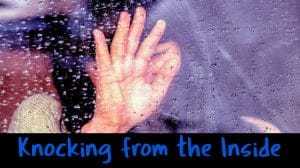
This is post 8 of 10 in the series “Rumi Poems”
Knocking from the Inside — there is no external rescue — just an opening of the door to ourselves.

Psst! Hey!
** Want more great writing designed to help YOU to shift your behaviour?
** Want to learn how to find, build or deepen your principal relationship?
** Want to know more about Zen living and being?
Many moons ago, I wrote a series of articles featuring some of Rumi’s poems. I think it’s time for a revisit.
Jelaluddin Rumi lived during the 13th century. He was a theologian with his own divinity school. At age 37, through a relationship with a dervish monk, Shams, Rumi began to transform his being, and in the process, to write some of the most beautiful mystical poetry ever written. For the next several weeks, we’ll reflect on some of his poems.
I’m using a translation from the book The Illuminated Rumi.
Knocking from the Inside
I have lived on the lip of insanity, wanting to know reasons, knocking on a door.
It opens.
I’ve been knocking from the inside!
Rumi
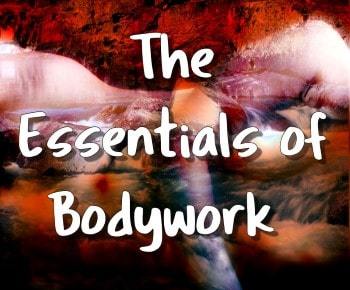
An announcement! Bodywork training revision!
Some years ago, I created a CD-R on Bodywork Training. A couple of months ago, I reworked it — improved the photos and videos — and made it an online resource. It’s available here — have a look!
Back in 1996, I had my first experience with Bodywork. I’d been a counsellor for a decade, and I was ready to learn something new.
I’d noticed that clients would gain intellectual insights from talk therapy, but “words only” didn’t seem to help at the body level. Stress remained, anxiety remained. Something else seemed to be needed, to get down to things at the body level.

I later learned that Bodywork works from the inside out (assuming that you let it) and that fits with today’s Rumi quote.
Here’s what I mean: in Bodywork, most points pressed simply feel like, well, points being pressed. Then, you press one that’s blocking an emotion — and the floodgates open and the emotion comes out… again, if you let it.
Now, letting things out is certainly something we can turn into a scary thing. In that ripe internal theatre of ours, we make up all kinds of stories about how this is too much or that’s going on for too long… or that I just don’t get this stuff…
Which leads a brief and amusing “Darbella” story — I’d been doing very intense Bodywork on Dar for six months or so. I’d notice how much Dar was letting out, but Dar would only say, “I just don’t feel the flow of energy you talk about.”
So, this one weekend, during a Bodywork teaching event, she did whatever she does differently, giving herself permission to really feel her energy. She quite pleased herself over it. We then did a mini-debriefing and I commented on what had happened for her. Dar, with a wicked grin on her face said, “Other than this time, I don’t feel my energy move.”
She was kidding, of course, and in a sense “being ironic” or making a joke about the idea that many people have.
We block ourselves and block ourselves and refuse to take responsibility for where we are and how we get ourselves stuck… and then something happens. We let ourselves have a transformative experience.
BUT… instead of absorbing the full impact of the one experience, we head off in one of two directions: we say,
Wow! I transcended!” and think we got something for all time, or
We say, as Dar was kidding about, “Well, that was a fluke. Nothing has changed.”
The “reality” is — both are true. We never get anything “for all time,” but if we allow ourselves, we can get “each one,” over and over again.
Rumi points to this in today’s quote. Many live on the lip of insanity, and for exactly the reasons he posits. We desperately want to know “why.” And we keep knocking on the doors of the (presumably) wise, as we want someone else to tell us “why.”
The part of us that does this to ourselves hates to hear this “truth” — there is no why, and no one else has your answers.
The mind runs aimlessly hither and thither, bumping up against itself, in various guises. (Who’d you think you were bumping into up there? There’s nobody home but you.) The mind, the ego voice, chatters incessantly, blaming, making excuses, and most of all, scaring you with dire consequences and evil predictions. Life seems precarious, dark, foreboding. We want to run away, to hide, to find safety.
Until, of course, we get the joke. We are knocking from the inside!
You can’t run away or get over it. There is nothing to run from, and there is no it. There’s just you, seeking the answer to the following, “Why am I choosing to scare myself?”
Because, how can you run away from a question you’re asking yourself?
There’s a booklet available on this topic on our Phoenix Centre Press site — it’s called “The Watcher” — about the voices in our heads. I concluded a long ago that the first step in self knowledge is the absolute acceptance of responsibility for what goes on in my life, and especially at the level of the stories I tell myself.
This point — this “getting it,” is described by Rumi as “the door opening.” This “opening” allows for in-sight. And the insight is, this is me, spinning my wheels, staying stuck, making choices (including the choice not to choose), scaring myself.
The freedom that comes with the opening of the door is the freedom of recognition. (Which is Latin, and means to think again — to re- cognate.)
It’s always me, interacting with me.
In the context of Bodywork, the supreme moment is allowing yourself to lie down on the table with curiosity as your goal. Breathe, let go, let go again, and see what chooses to emerge. Sounds, emotions may flood us from the depths of our being, sad, angry, grieving, joyous, ecstatic emotions, caused by nothing, just there, wanting out.
If we are patient with ourselves, out they will come, and we will feel larger.
One client, after Bodywork, and seeing the Rumi poetry books around, commented, “And isn’t that just like Bodywork and this workshop process. You end up feeling more roomy.”
Keep opening, keep walking, but knock. Then notice. Not only does the door open, but you discover that you’re opening the door to yourself. This is how you set your-self free. Amazing. And roomy.
Finally, just a note of thanks to all of you who keep reading The Pathless Path, despite the challenge my words sometimes elicit in you. A reader, this week, wrote:
I sometimes think…“wow, this guy has gone off the deep end”…then I say “what the hell,” and dive in after you and yup! once again I surface as I come to the end of your article and notice I’ve taken another deep breath!
February 26, 2018
Rumi Poems — Diving Deep
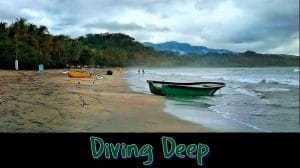
This is post 7 of 10 in the series “Rumi Poems”
Diving Deep — the path is “underwater” — beneath the surface, in a place few can survive. Half measures simply will not do

Psst! Hey!
** Want more great writing designed to help YOU to shift your behaviour?
** Want to learn how to find, build or deepen your principal relationship?
** Want to know more about Zen living and being?
Many moons ago, I wrote a series of articles featuring some of Rumi’s poems. I think it’s time for a revisit.
Jelaluddin Rumi lived during the 13th century. He was a theologian with his own divinity school. At age 37, through a relationship with a dervish monk, Shams, Rumi began to transform his being, and in the process, to write some of the most beautiful mystical poetry ever written. For the next several weeks, we’ll reflect on some of his poems.
I’m using a translation from the book The Illuminated Rumi.
Diving Deep
Late, by myself, in the boat of myself, no light and no land anywhere, cloud cover thick.
I try to stay just above the surface, yet I’m already under and living within the ocean.
Rumi

Some days, we’re simply lost under a cloud of illusion.
One deadly illusion is that we erroneously believe that can think our way into an enlightened state, or think our way out of the reality we confront.
Trying to “stay just above the surface” — to be less than 100% “immersed” — is to deny the reality of the depths of what we seek.
So, how was that for an obscure opening?
Why do we believe what we believe? As I wrote in my book, Living Life in Growing Orbits, our beliefs have been embedded in us by our culture and our tribes. This includes our beliefs about illness, and healing, and wholeness, and definitely includes our beliefs about what we are capable of.
Most people choose to spend their lives in ignorance. They refuse to explore the beliefs they hold — despite the problems their hidden beliefs have led to. We thus are prone to be confused; we know something is “wrong,” but we resist looking at our belief systems for the cause.

© The Toronto Star, edits mine
It’s right in the middle of the Olympics right now. The Canadian Olympics Women’s Curling Team was eliminated from medals last night. This is the first time since the 90’s the women won’t take home a medal.
Rachel Homan, the Skip, has been well off her game, as in, curling terribly. In all of her interviews, she refuses to talk about her curling. She says, “The other teams are really tough.” As Darbella put it: “The other teams didn’t win; Canada lost.”
In the last end, Canada missed 4 SHOTS!! including 2 thrown by Homan. I would love her to say, “Boy, was I ever off my game. I apologise.” (It would be so Canadian to do so — she’d get country-wide props.) Indeed, as the Toronto Star put it: “Here [the Olympics], after curling 77 per cent for the tournament (she normally curls 85% — a dominant percentage) Homan seemed stunned to the point of residing in a state of denial.”
Great line, that. How many, we wonder, are also “residing in a state of denial” regarding their lives?
We were once at a party, and the conversation turned to Bodywork, psychotherapy and “getting it.” There were three women having the conversation, in the main, while I and a few others listened. They were comparing notes. In general, they all agreed that the turning point in their Bodywork and their internal search, for each of them, in their own way, came when they stopped trying to “understand.”
It’s very western of us to look for explanations for everything.
Our little heads want to think and think, and come up with the meaning of, say, our feelings. (I’m amazed at how many people want to think a feeling.) We desperately want to understand why “I am unhappy while everyone else is happy, successful, whatever.”
We want to pretend that the only real or important game is the one played in our head — and that the rules for this game are clear, so we must be stupid for not getting it.
But what if all of this is simply an illusion? What if this version of “reality” — isn’t?
As Rumi points out, just under the surface of the illusory game of “figuring it all out” is the real game. It’s like Rumi is suggesting that he had been deluding himself forever, thinking he was in a slow and heavily laden boat, making time, keeping afloat. And then, he wakes up to discover that he’s always been in another realm altogether. This level seems “just below the surface.”
He discovers that he is living in the ocean of underlying purpose.
Normally, there is a nattering chatter in one’s head — the “trying to understand” and therefore “control” voice. (Or, as Dar describes it, “I don’t care what I do as long as I do it right.” As if there is a “right” way, as opposed to a Darbella way.)
The three women spoke of the need to simply let the chatter fade to background. To, in other words, get out of the way. As that happens, another understanding takes its place, a visceral understanding. The world becomes imbued with color, and meaning.
This approach applies to any aspect of life — to relationships, jobs, whatever. It’s another, deeper way of seeing.
In this process — the hard work of “deepening” — our resistance to change and to shifts in direction seem to disappear. It seems magical, until you realize that, always, the way we see the world isn’t real.
It’s just this moment’s story.
The more restricted self-story you tell yourself, the more you limit yourself — the more stalling around you do with regards to beginning to operate from another perspective — the more miserable you become.
On the other hand, the more you open yourself to the possibility of doing things differently — the more open you are to experimentation and pushing the limits — the more you notice that you are submerged in a field of possibility so vast as to be unlimited.
The fear is that you will get lost, that you will lose control, that things will cease being predictable. The joke is that nothing is predictable, there is no control possible and there is no “there” to get lost in.
Dar and I have been working on this for 36 years. Our learning so far is this: no matter how far we go, we’ve only scratched the surface of the possible. With each breath, with each dive beneath the surface, vistas open before us.
The limit is not in the ocean. The limit arises if I choose, in my fear and doubt, to close my eyes, climb back into the heavy boat, and stop the process.
We’re glad you’re along for the walk. Now, open your eyes and see, breathe and feel, and notice — life lived at the boundary and in the depths is the only bliss there is.
Unless you’re willing to settle for being stuck.
And you’re not doing that, are you??
Rumi — Diving Deep

This is post 7 of 7 in the series “Rumi Poems”
Rumi’s Poetry as a Way Inside
Diving Deep — the path is “underwater” — beneath the surface, in a place few can survive. Half measures simply will not do

Psst! Hey!
** Want more great writing designed to help YOU to shift your behaviour?
** Want to learn how to find, build or deepen your principal relationship?
** Want to know more about Zen living and being?
Many moons ago, I wrote a series of articles featuring some of Rumi’s poems. I think it’s time for a revisit.
Jelaluddin Rumi lived during the 13th century. He was a theologian with his own divinity school. At age 37, through a relationship with a dervish monk, Shams, Rumi began to transform his being, and in the process, to write some of the most beautiful mystical poetry ever written. For the next several weeks, we’ll reflect on some of his poems.
I’m using a translation from the book The Illuminated Rumi.
Diving Deep
Late, by myself, in the boat of myself, no light and no land anywhere, cloud cover thick.
I try to stay just above the surface, yet I’m already under and living within the ocean.
Rumi

Some days, we’re simply lost under a cloud of illusion.
One deadly illusion is that we erroneously believe that can think our way into an enlightened state, or think our way out of the reality we confront.
Trying to “stay just above the surface” — to be less than 100% “immersed” — is to deny the reality of the depths of what we seek.
So, how was that for an obscure opening?
Why do we believe what we believe? As I wrote in my book, Living Life in Growing Orbits, our beliefs have been embedded in us by our culture and our tribes. This includes our beliefs about illness, and healing, and wholeness, and definitely includes our beliefs about what we are capable of.
Most people choose to spend their lives in ignorance. They refuse to explore the beliefs they hold — despite the problems their hidden beliefs have led to. We thus are prone to be confused; we know something is “wrong,” but we resist looking at our belief systems for the cause.

© The Toronto Star, edits mine
It’s right in the middle of the Olympics right now. The Canadian Olympics Women’s Curling Team was eliminated from medals last night. This is the first time since the 90’s the women won’t take home a medal.
Rachel Homan, the Skip, has been well off her game, as in, curling terribly. In all of her interviews, she refuses to talk about her curling. She says, “The other teams are really tough.” As Darbella put it: “The other teams didn’t win; Canada lost.”
In the last end, Canada missed 4 SHOTS!! including 2 thrown by Homan. I would love her to say, “Boy, was I ever off my game. I apologise.” (It would be so Canadian to do so — she’d get country-wide props.) Indeed, as the Toronto Star put it: “Here [the Olympics], after curling 77 per cent for the tournament (she normally curls 85% — a dominant percentage) Homan seemed stunned to the point of residing in a state of denial.”
Great line, that. How many, we wonder, are also “residing in a state of denial” regarding their lives?
We were once at a party, and the conversation turned to Bodywork, psychotherapy and “getting it.” There were three women having the conversation, in the main, while I and a few others listened. They were comparing notes. In general, they all agreed that the turning point in their Bodywork and their internal search, for each of them, in their own way, came when they stopped trying to “understand.”
It’s very western of us to look for explanations for everything.
Our little heads want to think and think, and come up with the meaning of, say, our feelings. (I’m amazed at how many people want to think a feeling.) We desperately want to understand why “I am unhappy while everyone else is happy, successful, whatever.”
We want to pretend that the only real or important game is the one played in our head — and that the rules for this game are clear, so we must be stupid for not getting it.
But what if all of this is simply an illusion? What if this version of “reality” — isn’t?
As Rumi points out, just under the surface of the illusory game of “figuring it all out” is the real game. It’s like Rumi is suggesting that he had been deluding himself forever, thinking he was in a slow and heavily laden boat, making time, keeping afloat. And then, he wakes up to discover that he’s always been in another realm altogether. This level seems “just below the surface.”
He discovers that he is living in the ocean of underlying purpose.
Normally, there is a nattering chatter in one’s head — the “trying to understand” and therefore “control” voice. (Or, as Dar describes it, “I don’t care what I do as long as I do it right.” As if there is a “right” way, as opposed to a Darbella way.)
The three women spoke of the need to simply let the chatter fade to background. To, in other words, get out of the way. As that happens, another understanding takes its place, a visceral understanding. The world becomes imbued with color, and meaning.
This approach applies to any aspect of life — to relationships, jobs, whatever. It’s another, deeper way of seeing.
In this process — the hard work of “deepening” — our resistance to change and to shifts in direction seem to disappear. It seems magical, until you realize that, always, the way we see the world isn’t real.
It’s just this moment’s story.
The more restricted self-story you tell yourself, the more you limit yourself — the more stalling around you do with regards to beginning to operate from another perspective — the more miserable you become.
On the other hand, the more you open yourself to the possibility of doing things differently — the more open you are to experimentation and pushing the limits — the more you notice that you are submerged in a field of possibility so vast as to be unlimited.
The fear is that you will get lost, that you will lose control, that things will cease being predictable. The joke is that nothing is predictable, there is no control possible and there is no “there” to get lost in.
Dar and I have been working on this for 36 years. Our learning so far is this: no matter how far we go, we’ve only scratched the surface of the possible. With each breath, with each dive beneath the surface, vistas open before us.
The limit is not in the ocean. The limit arises if I choose, in my fear and doubt, to close my eyes, climb back into the heavy boat, and stop the process.
We’re glad you’re along for the walk. Now, open your eyes and see, breathe and feel, and notice — life lived at the boundary and in the depths is the only bliss there is.
Unless you’re willing to settle for being stuck.
And you’re not doing that, are you??
The post Rumi — Diving Deep appeared first on The Pathless Path.
February 19, 2018
Rumi Poems — A Difficult Path
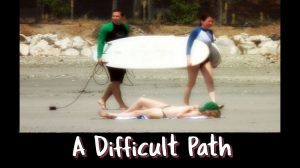
This is post 6 of 10 in the series “Rumi Poems”
A Difficult Path — the road Rumi suggests is not an easy one, because it’s all about being who you are, as opposed to expecting others to pave the path for you.
Rumi’s Poetry as a Way Inside

Psst! Hey!
** Want more great writing designed to help YOU to shift your behaviour?
** Want to learn how to find, build or deepen your principal relationship?
** Want to know more about Zen living and being?
Many moons ago, I wrote a series of articles featuring some of Rumi’s poems. I think it’s time for a revisit.
Jelaluddin Rumi lived during the 13th century. He was a theologian with his own divinity school. At age 37, through a relationship with a dervish monk, Shams, Rumi began to transform his being, and in the process, to write some of the most beautiful mystical poetry ever written. For the next several weeks, we’ll reflect on some of his poems.
I’m using a translation from the book The Illuminated Rumi.
Be Source, not result
We must not be afraid of what anyone might say:
Be source, not result.
Rumi
Jelaluddin Rumi lived during the 13th century. He was a theologian with his own divinity school. At age 37, through a relationship with a dervish monk, Shams, Rumi began to transform his being, and in the process, to write some of the most beautiful mystical poetry ever written. For the next several weeks, we’ll reflect on some of his poems.
I’m using a translation found in the book The Illuminated Rumi.
 I seem OK to me…
I seem OK to me…This line is the tail end of a poem about Spirit and madness. A preceding line says: “half-crazy is not nearly enough for you!”
This difficult path… the e idea of being source, not result flies in the face of societal teachings. Yet, this theme is prevalent among great thinkers:
- Here’s a related quote from one of my favourite humans, Robert F. Kennedy:
Fear not the path of truth for the lack of people walking on it.
And this:
This poem was written by Mother Teresa and is engraved on the wall of her home for children in Calcutta.
Do It Anyway
People are often unreasonable, illogical, and self-centered;
Forgive them anyway.
If you are kind, People may accuse you of selfish, ulterior motives;
Be kind anyway.
If you are successful, you will win some false friends and some true enemies;
Succeed anyway.
If you are honest and frank, people may cheat you;
Be honest and frank anyway.
What you spend years building, someone could destroy it overnight;
Build anyway.
If you find serenity and happiness, they may be jealous;
Be happy anyway.
The good you do today, people will often forget tomorrow;
Do good anyway.
Give the world the best you have, and it may never be enough;
Give the world the best you’ve got anyway.
You see, in the final analysis, it is between you and God;
It was never between you and them anyway.
Mother Teresa
This, truly, is a difficult path.
Perhaps the hardest thing to learn or admit to is this: In relation to others, we are absolutely powerless to make them change. In relation to ourselves, we are absolutely in charge of our own experience.
Now, why is this so hard to get? I suspect it has something to do with our deep instinct to fix things that are “out there.” Now, paradoxically, that is what we do in our business lives. We adjust systems, create products, invent cures — in short, we spend our working careers looking for what’s broken, and creating solutions. And this is as it should be.
When it comes to the status of our own deep structure — our selves — our instinct is to apply the same criteria: “My life is a mess, let me see who is messing it up, and get them to shift.”
One client averaged a year with each man she “dated.” She tried to fix the men who treated her badly, then kicked them out when they wouldn’t “fix.” The men who treated her well soon became boring.
Now, it would have been “easy” to talk with her about how she dealt with men, but my tack was to ask her to explore her own needs and desires. What did she want out of a relationship?
She sat quietly, wheels spinning. Finally, she said, “I don’t know. I don’t even know if I want to be in relationship.” And hidden in that was, “I put up with this dating crap to keep from being alone.”
I notice that when people actually choose to walk this path of self-examination and self-reflection, much about them changes.

There is a deepening groundedness, an ability to see what’s actually happening.
Rumi reminds us to look to our own creativity; to be a creator, not a tag-along. And because of the lines above, he recognizes that being a creator takes a good supply of crazy.
It is of course easier to fit in. I’ll bet you can still remember the one or two kids in High School who didn’t fit in — and you likely remember the names they were called.
And you’ll likely remember, as I do, the superficial stuff you changed to pretend to be unique — letting my hair grow long in 1968 comes to mind — while doing everything in your power to be accepted.
As we do this outward-focussed dance, as we change our direction based upon what we think others want or will do, we move further and further away from ourselves. And all of it is based upon wanting to fit in to what society is doing!
To me, that’s really scary.
To “be source, not result” is the ultimate freedom to live our lives as we were intended to. Mother Teresa speaks of this quite frankly — when you step out of society’s line, when you live your heart’s passion and desire, you’re going to annoy people — and her advice is “do it anyway.”
“But what will people think?” Beats me.
I find, as usual, a paradox. People bent on control, people who would like others to behave a certain way, can really annoy themselves over those others and their direction.
On the other hand, the more I walk the difficult path, the more I dedicate myself to knowing as much as I can about me and my journey, the more I meet people on a similar walk. So I lose some, but certainly win some. This crowd of “friends” is not huge, but boy, are they fun to hang around with.
Which is why Rumi spoke, not to the masses, but to his community. Which is why Mother Teresa had that quote tacked up in her home for her children — the quote was for her sisters, for the kids, not for “the world.”
Or as the Kennedy quote says,
“Fear not the path of truth for the lack of people walking on it.”
I do not judge that the path of “the world” is wrong. I have decided that it is a path I choose not to walk.
I do not judge average, everyday, standard, manipulative relationships to be wrong. I do judge that having one would make me miserable, so I choose total honesty, deep commitment, intimacy and joy in my relationships.
I do not judge that people who are living their lives dishonestly — by continually trying to figure out what others want and changing to fit that mold, or trying to get the other person to change, are wrong. I judge that I have enough to do learning to live inside my own skin, having my feelings, claiming my judgements as being totally about me, discovering and re-discovering my passion and living it out.
I re-invite you to join us on this walk. Look inside and see the drama. Look inside and purge yourself of the need for approval. Look inside and see the depth and beauty that is your essence. Start right this moment to build what only you can build, from the depth of you.
Others may attempt to tear it down, but the success of our life is not measured in what we pile up. It’s measured in the act of creation itself. A dynamic process and a fluid intermingling of like minded souls.
And it’s a walk on a road that is never crowded.
Rumi — A Difficult Path

This is post 6 of 6 in the series “Rumi Poems”
Rumi’s Poetry as a Way Inside
A Difficult Path — the road Rumi suggests is not an easy one, because it’s all about being who you are, as opposed to expecting others to pave the path for you.

Psst! Hey!
** Want more great writing designed to help YOU to shift your behaviour?
** Want to learn how to find, build or deepen your principal relationship?
** Want to know more about Zen living and being?
Many moons ago, I wrote a series of articles featuring some of Rumi’s poems. I think it’s time for a revisit.
Jelaluddin Rumi lived during the 13th century. He was a theologian with his own divinity school. At age 37, through a relationship with a dervish monk, Shams, Rumi began to transform his being, and in the process, to write some of the most beautiful mystical poetry ever written. For the next several weeks, we’ll reflect on some of his poems.
I’m using a translation from the book The Illuminated Rumi.
Be Source, not result
We must not be afraid of what anyone might say:
Be source, not result.
Rumi
Jelaluddin Rumi lived during the 13th century. He was a theologian with his own divinity school. At age 37, through a relationship with a dervish monk, Shams, Rumi began to transform his being, and in the process, to write some of the most beautiful mystical poetry ever written. For the next several weeks, we’ll reflect on some of his poems.
I’m using a translation found in the book The Illuminated Rumi.
 I seem OK to me…
I seem OK to me…This line is the tail end of a poem about Spirit and madness. A preceding line says: “half-crazy is not nearly enough for you!”
The idea of being source, not result flies in the face of societal teachings. Yet, this theme is prevalent among great thinkers:
- Here’s a related quote from one of my favourite humans, Robert F. Kennedy:
Fear not the path of truth for the lack of people walking on it.
And this:
This poem was written by Mother Teresa and is engraved on the wall of her home for children in Calcutta.
Do It Anyway
People are often unreasonable, illogical, and self-centered;
Forgive them anyway.
If you are kind, People may accuse you of selfish, ulterior motives;
Be kind anyway.
If you are successful, you will win some false friends and some true enemies;
Succeed anyway.
If you are honest and frank, people may cheat you;
Be honest and frank anyway.
What you spend years building, someone could destroy it overnight;
Build anyway.
If you find serenity and happiness, they may be jealous;
Be happy anyway.
The good you do today, people will often forget tomorrow;
Do good anyway.
Give the world the best you have, and it may never be enough;
Give the world the best you’ve got anyway.
You see, in the final analysis, it is between you and God;
It was never between you and them anyway.
Mother Teresa
This, truly, is a different path.
Perhaps the hardest thing to learn or admit to is this: In relation to others, we are absolutely powerless to make them change. In relation to ourselves, we are absolutely in charge of our own experience.
Now, why is this so hard to get? I suspect it has something to do with our deep instinct to fix things that are “out there.” Now, paradoxically, that is what we do in our business lives. We adjust systems, create products, invent cures — in short, we spend our working careers looking for what’s broken, and creating solutions. And this is as it should be.
When it comes to the status of our own deep structure — our selves — our instinct is to apply the same criteria: “My life is a mess, let me see who is messing it up, and get them to shift.”
One client averaged a year with each man she “dated.” She tried to fix the men who treated her badly, then kicked them out when they wouldn’t “fix.” The men who treated her well soon became boring.
Now, it would have been “easy” to talk with her about how she dealt with men, but my tack was to ask her to explore her own needs and desires. What did she want out of a relationship?
She sat quietly, wheels spinning. Finally, she said, “I don’t know. I don’t even know if I want to be in relationship.” And hidden in that was, “I put up with this dating crap to keep from being alone.”
I notice that when people actually choose to walk this path of self-examination and self-reflection, much about them changes.

There is a deepening groundedness, an ability to see what’s actually happening.
Rumi reminds us to look to our own creativity; to be a creator, not a tag-along. And because of the lines above, he recognizes that being a creator takes a good supply of crazy.
It is of course easier to fit in. I’ll bet you can still remember the one or two kids in High School who didn’t fit in — and you likely remember the names they were called.
And you’ll likely remember, as I do, the superficial stuff you changed to pretend to be unique — letting my hair grow long in 1968 comes to mind — while doing everything in your power to be accepted.
As we do this outward-focussed dance, as we change our direction based upon what we think others want or will do, we move further and further away from ourselves. And all of it is based upon wanting to fit in to what society is doing!
To me, that’s really scary.
To “be source, not result” is the ultimate freedom to live our lives as we were intended to. Mother Teresa speaks of this quite frankly — when you step out of society’s line, when you live your heart’s passion and desire, you’re going to annoy people — and her advice is “do it anyway.”
“But what will people think?” Beats me.
I find, as usual, a paradox. People bent on control, people who would like others to behave a certain way, can really annoy themselves over those others and their direction.
On the other hand, the more I walk my path, the more I dedicate myself to knowing as much as I can about me and my journey, the more I meet people on a similar walk. So I lose some, but certainly win some. This crowd of “friends” is not huge, but boy, are they fun to hang around with.
Which is why Rumi spoke, not to the masses, but to his community. Which is why Mother Teresa had that quote tacked up in her home for her children — the quote was for her sisters, for the kids, not for “the world.”
Or as the Kennedy quote says,
“Fear not the path of truth for the lack of people walking on it.”
I do not judge that the path of “the world” is wrong. I have decided that it is a path I choose not to walk.
I do not judge average, everyday, standard, manipulative relationships to be wrong. I do judge that having one would make me miserable, so I choose total honesty, deep commitment, intimacy and joy in my relationships.
I do not judge that people who are living their lives dishonestly — by continually trying to figure out what others want and changing to fit that mold, or trying to get the other person to change, are wrong. I judge that I have enough to do learning to live inside my own skin, having my feelings, claiming my judgements as being totally about me, discovering and re-discovering my passion and living it out.
I re-invite you to join us on this walk. Look inside and see the drama. Look inside and purge yourself of the need for approval. Look inside and see the depth and beauty that is your essence. Start right this moment to build what only you can build, from the depth of you.
Others may attempt to tear it down, but the success of our life is not measured in what we pile up. It’s measured in the act of creation itself. A dynamic process and a fluid intermingling of like minded souls.
And it’s a walk on a road that is never crowded.
The post Rumi — A Difficult Path appeared first on The Pathless Path.
February 12, 2018
Rumi Poems — Mean-spirited Roadhouses

This is post 5 of 10 in the series “Rumi Poems”
Rumi’s Poetry as a Way Inside
Mean-spirited Roadhouses — it’s so very easy to distract ourselves from the truly hard work of self-transformation. It takes great discipline to look deeply at the only thing you can change — your approach to living

Psst! Hey!
** Want more great writing designed to help YOU to shift your behaviour?
** Want to learn how to find, build or deepen your principal relationship?
** Want to know more about Zen living and being?
Many moons ago, I wrote a series of articles featuring some of Rumi’s poems. I think it’s time for a revisit.
Jelaluddin Rumi lived during the 13th century. He was a theologian with his own divinity school. At age 37, through a relationship with a dervish monk, Shams, Rumi began to transform his being, and in the process, to write some of the most beautiful mystical poetry ever written. For the next several weeks, we’ll reflect on some of his poems.
I’m using a translation from the book The Illuminated Rumi.
Mean-spirited Roadhouses
Gamble everything for love,
if you’re a true human being.
If not, leave this gathering.
Half-heartedness doesn’t reach into majesty.
You set out to find God, but then you keep stopping for long periods at mean-spirited roadhouses.
Don’t wait any longer. Dive in the ocean, leave, and let the sea be you.
Silent, absent, walking an empty road, all praise.
Rumi
Or, to quote that famous Jedi master, Yoda,
“Try not. Do. Or do not. There is no try.”
Half-heartedness doesn’t reach into majesty
Now, there’s a line for you … almost as good as the one that follows. Rumi is definitely into total commitment.
One of the real tests for clients and seekers of all stripes is this: how much are you willing to commit, and when, and how? Rumi makes it clear that the kind of life he lives requires the willingness to “gamble everything.”
I like the idea of this being a gamble. A truer thing was never said. No matter how clever we are, no matter what our advantages (or lack thereof)… it’s all still a crap-shoot. Nothing can guarantee results, nothing can assure success… because… it’s a gamble.
Now, that’s not meant to be a discouragement. True human beings, Rumi tells us, gamble it all for love. He sees it in terms of “setting out to find God,” but it’s clear that his mission is nothing less than the transformation of the self.
So, what’s with the mean-spirited roadhouses?
That’s such a good line. Rumi imagines a wanderer — a pilgrim — seeking the silent, empty road that Zen practitioners know so well. It’s the road of silent inward focus.
And then, just like flying into Vegas, there it is! The distraction. The along-the-side-of-the road, road-side attraction that pulls one out of the walk and into the drama.
This was a common theme for clients. Can’t tell you how many walked into the office all set to straighten things out: to change relationships, to be better parents, to find a path worth walking.
And some, maybe 10%, pulled it off. They found the quiet path of self-knowing, dropped dysfunctional game-playing, and in a sense dissolved into the sea of awareness.
Not common, though
 Here I am again…
Here I am again…Most simply found themselves them bellying up to the bar of their favourite mean-spirited roadhouses. And by this I mean they simply did what they always do… and it felt oh so familiar. The comfort of the familiar outweighs the commitment to change.
One person I know is convinced that she is the best parent going: she knows this because she does whatever her teens want her to. She’s highly judgy of her ex’s parenting skills, and as far as I can see, she misses the point of parenting — which is doing herself out of a job. But boy does she think she’s in control.
Others, who have learned another, better lesson, let their teens try and fail, pick themselves up, and walk again. Because that’s how young people learn.
Now, I’m emphatically not making a judgement here. I am suggesting that there are two approaches to life, One is the path of active engagement. The other is “wait and hope” that this time, things will just work out.
The stopping and waiting and hoping, I am convinced, has to do with our fear of pain. Now, if that seems to imply that self-exploration and change is painful, let me state this clearly — self exploration is often painful. Walking a path that is our own is often painful.
But, as Rumi says, this is about finding God, purpose, identity … a life-long walk into the depths of yourself. This, I would suggest, makes the pain worthwhile.
Ruthless self-examination helps us to see how we make our own messes — how we get into trouble, how we let ourselves do things that lead down dark paths.
As we discover these things, we can choose to let them go.
The other folk… the ones who keep praying for magic? They mostly discover mean-spirited roadhouses, and keep stopping in for a beer.
The distractions that cross our path are many, and are all self-created. On the other hand, the solution is found in the willingness to examine our ideas and behaviours, and compassionately make changes.
The point is not to exchange the bludgeon of the world with a ball peen hammer we smack ourselves with. The game is all in the noticing, and then in the choosing to walk on, into a new way of seeing and being.
We can be so self protective of the behaviours and understandings we’ve set up, (despite our self-protective walls getting us nothing that we want) that we forget that we established the walls in the first place.
The final line of the Rumi poem is the ideal. Here, the person has immersed herself in the sea of life and stepped out as a new being. The person’s ego structure is set aside, and the person finds her egoless self.
“Silent, absent, walking an empty road.”
Life, lived to the fullest, is about understanding that you are the source of all that you believe about life, others and yourself. There is nothing else going on.
Stopping by mean-spirited roadhouses for a distraction, to find someone to blame, to simply sit and watch your life pass you by … is precisely the route to nowhere.
Continuing to walk, continuing to see yourself and continuing to make the changes necessary is the ultimate gamble.
And yet, if you wish to be of service, and to truly exhibit love, it’s the only way that leads anywhere.
And where does it lead? To the depths of you. Here and Now. Because Here and Now is all that there ever is.



